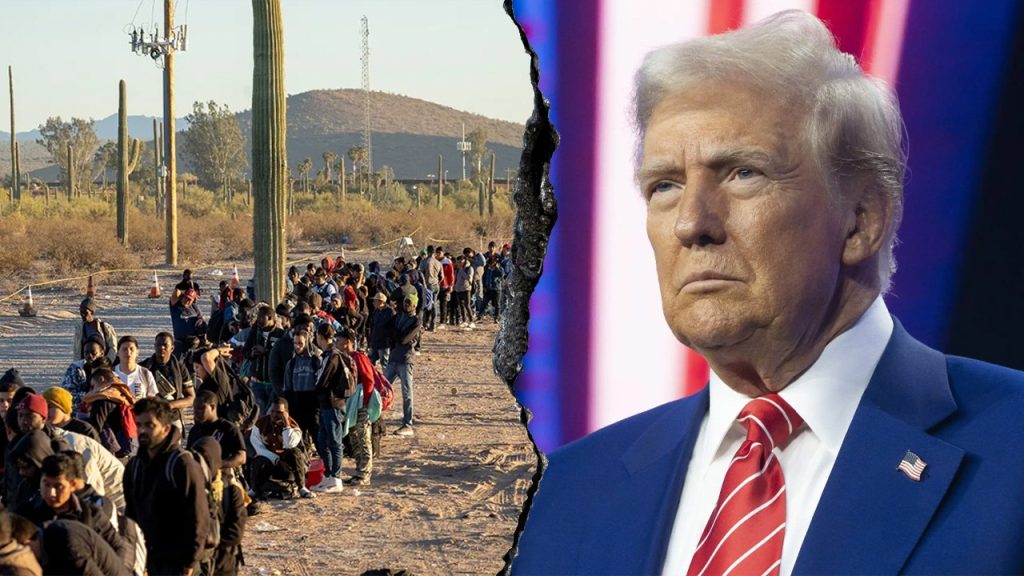A federal appellate court has declined to impose a stay on a lower court’s ruling, which limits the Trump administration’s ability to deport Venezuelan nationals under a 1798 wartime law. In a divided decision, a three-judge panel of the D.C. Circuit Court of Appeals ruled in favor of plaintiffs challenging the administration’s deportation efforts, further obstructing its immigration agenda. The ruling follows an earlier temporary restraining order issued by U.S. District Judge James Boasberg, indicating significant legal hurdles ahead for the administration’s actions.
| Article Subheadings |
|---|
| 1) Court Ruling Overview and Implications |
| 2) Legal Arguments and Judicial Dynamics |
| 3) Administration’s Response and Future Actions |
| 4) Expert Opinions on Immigration Policy |
| 5) Potential Consequences for U.S. Immigration Law |
Court Ruling Overview and Implications
The recent ruling by the D.C. Circuit Court of Appeals stems from a case where the Trump administration’s use of the Alien Enemies Act to deport Venezuelan nationals was challenged. In its decision, the court did not grant the administration’s request to stay a temporary restraining order originally issued by Judge James Boasberg, which halted the deportations pending further review. This ruling arises in the context of a legal battle concerning the government’s authority to expeditiously remove individuals under a law that dates back to the late 18th century. Legal experts view the ruling as a significant pushback against perceived overreach by the executive branch. The case raises critical questions about the extent of presidential power concerning immigration and national security.
Legal Arguments and Judicial Dynamics
The judicial proceedings in this case have revealed sharp disagreements among the judges regarding the legal frameworks applicable to the deportation claims. Among the judges, Patricia Millett, an appointee of President Obama, questioned the constitutional validity of the Trump administration’s actions, emphasizing the need for due process for those affected. This dialogue highlighted the tension between the administration’s national security justifications and individuals’ rights under U.S. law. Judge Karen Henderson, a Bush appointee, concurred with the decision but noted that the government had failed to demonstrate a strong probability of success on the merits of the case. The differences in judicial philosophy reflect broader divisions regarding immigration issues that have intensified during the Trump era.
Administration’s Response and Future Actions
In response to the court’s ruling, officials from the Trump administration expressed dissatisfaction, criticizing the legal framework that they believe impedes their immigration strategies. Attorney General Pam Bondi has specifically condemned the lower court’s involvement in what she perceives as executive prerogative, indicating plans to escalate the case to the Supreme Court for review. The administration claims that lower courts should not interfere with security measures designed to safeguard American citizens, particularly in cases involving suspected gang members and criminal elements. This disagreement reflects ongoing tensions in U.S. immigration policy as the administration attempts to balance public safety against constitutional protections.
Expert Opinions on Immigration Policy
Legal scholars and immigration experts have highlighted the ramifications of this ruling for the broader landscape of U.S. immigration policy. Some argue that this case exemplifies a critical moment in defining the boundaries of executive power in immigration matters. Experts assert that the legal principles established in this case could have lasting impacts on how the government enforces immigration laws, particularly in cases involving national security concerns. There are concerns that allowing expedited deportations without adequate legal safeguards could lead to gross violations of personal rights and injustices. The balance between enforcing immigration laws and upholding constitutional protections remains a contentious issue amongst legal commentators and policymakers alike.
Potential Consequences for U.S. Immigration Law
The outcome of this case, particularly if ultimately reviewed by the Supreme Court, could have profound implications for future immigration law in the United States. A ruling in favor of the administration could potentially broaden the scope of executive authority concerning deportations and national security, while a ruling against it might constrain the government’s ability to swiftly remove individuals deemed dangerous. The implications extend beyond immediate legal outcomes, influencing how immigration policies are constructed at all levels of government.
| No. | Key Points |
|---|---|
| 1 | The D.C. Circuit Court of Appeals has blocked the Trump administration’s ability to deport Venezuelan nationals under the Alien Enemies Act. |
| 2 | Judges expressed concerns regarding due process for individuals facing deportation and the constitutional implications of the administration’s actions. |
| 3 | The Trump administration plans to appeal the ruling to the Supreme Court, asserting the need for executive authority in immigration matters. |
| 4 | Legal experts warn that the result of the case could set critical precedents affecting future immigration enforcement practices. |
| 5 | The case illustrates the ongoing tension between national security interests and the protection of constitutional rights in immigration policy. |
Summary
The legal conflict surrounding the Trump administration’s efforts to deport Venezuelan nationals has opened a complex dialogue about immigration authority, due process, and executive power. With the appellate court’s recent ruling blocking immediate deportations, the case now awaits potential escalations to the Supreme Court. This development underscores the critical importance of how courts interpret the balance between national security and individual rights in shaping the future of U.S. immigration law.
Frequently Asked Questions
Question: What is the Alien Enemies Act?
The Alien Enemies Act is a U.S. law enacted in 1798 that grants the president authority to deport or detain individuals from countries that are at war with the United States.
Question: Why did the court issue a temporary restraining order?
The temporary restraining order was issued to halt deportations pending a full consideration of the legal arguments presented, particularly regarding due process rights for the individuals affected.
Question: What could be the implications of this ruling if it reaches the Supreme Court?
A Supreme Court ruling in this case could redefine the boundaries between executive power in immigration enforcement and constitutional protections, affecting how future deportations are handled at a national level.


